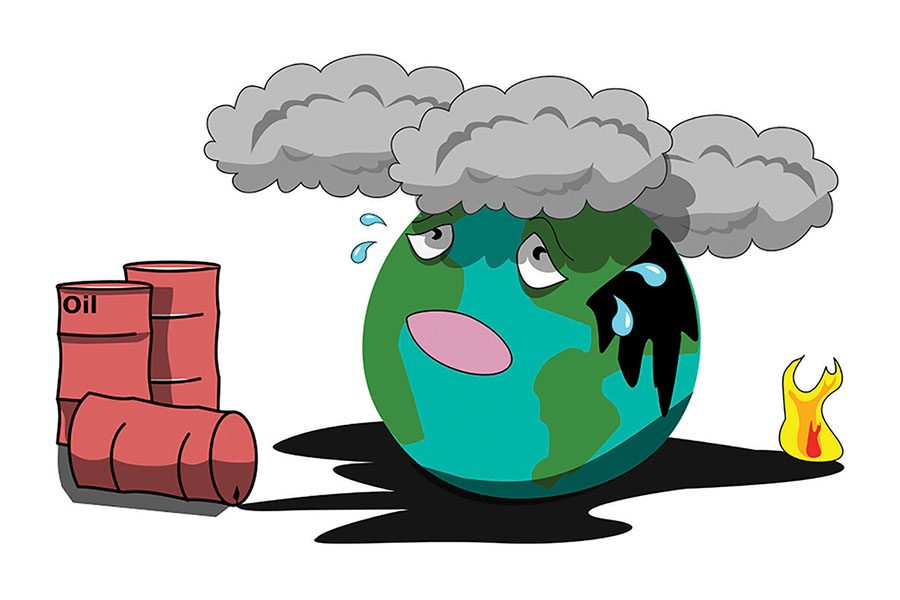Killing the planet?
Our daily habits have been bad for our habitat
October 3, 2019
Are we slowly killing the planet that sustains us? The answer, unfortunately, is yes.
There are several ways we contribute to environmental degradation. Humans are responsible for the mass consumption and waste of plastic. Scientists that work with National Oceanic and Atmospheric Administration suggest that around 8 million metric tons of plastic are dumped into our oceans each year.
Plastic, unlike other waste products, does not deteriorate. In several areas throughout the Pacific, there are garbage patches, or floating masses of plastic and other debris that span for miles long. Oceanic wildlife is made to suffer from our carelessness. They mistake plastic for food or become tangled in debris.
Unless we reject the urge to disregard proper disposal of plastic waste, habitat loss will continue to accelerate. However, plastic waste is not the only cause for environmental distress. Carbon dioxide levels are a major factor to consider towards our role in Earth’s downfall.
Since the beginning of the industrial revolution, we’ve released relentless amounts of fossil fuels into the atmosphere. The introduction of mainstream automobile use has made matters even worse. Excess carbon dioxide amounts have already affected sea levels. Difference in sea levels have affected climate patterns, weather patterns, and habitat patterns.
“If fossil-fuel burning continues at a business-as-usual rate… The atmosphere would then not return to pre-industrial levels even tens of thousands of years into the future,” states “The Relentless Rise of Carbon Dioxide,” an article published by NASA. This further decreases the chances for human and wildlife sustenance.
One would think that this collection of issues would force humanity to take a step back and re-evaluate our treatment towards the planet. On the contrary, we continue to defile our planet through deforestation.
An article called “Climate 101: Deforestation” by Christina Nunez of National Geographic states “between 1990 and 2016, the world lost 502,000 square miles (1.3 million square kilometers) of forest, according to the World Bank—an area larger than South Africa.”
Forests are necessary for several reasons. They provide a home for forest inhabitants around the globe. They absorb carbon dioxide and other noxious gases produced by fossil fuels.
Most importantly, they release the oxygen we need to survive. We take objects as natural as trees for granted to further our own structural and corporate growth.
We must remember what forests, oceans, and the climate have provided for us. We must realize the consequences our actions have on these elements that make Earth a place to call home. We must decrease our plastic use. We must emit fossil fuels from our daily lives. We must make a conscious effort to combat deforestation. Only then will our planet have a chance at survival.
































